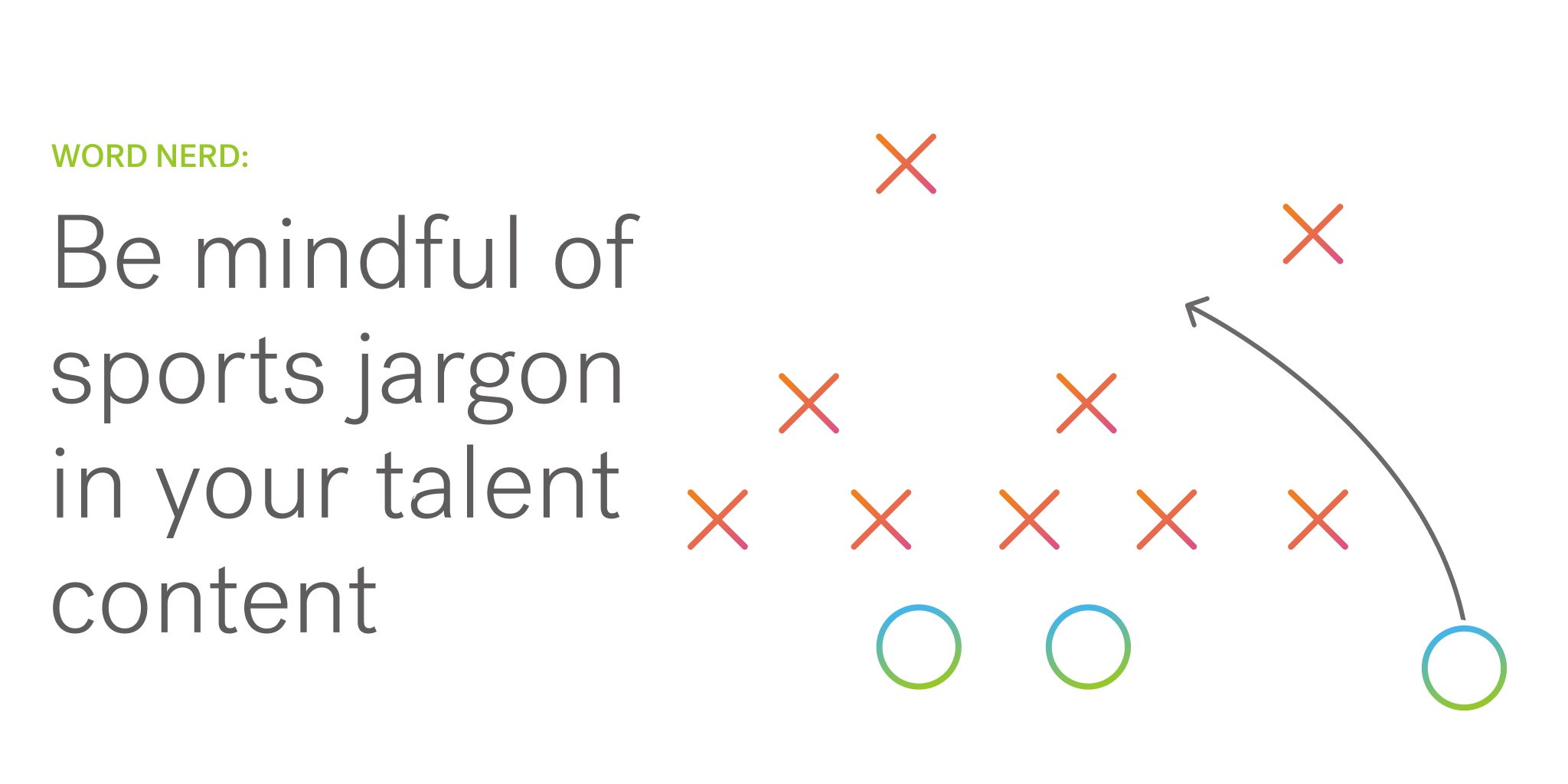Be mindful of sports jargon in your talent content

Who doesn’t love idioms? They provide a window into a culture and can make an otherwise bland message more fun. But they are inscrutable if you’re unfamiliar with them (and that’s no fun at all).
Sports jargon is no different. The goal of communication, particularly in business, is sharing your thoughts clearly. To someone who doesn’t follow sports or lives outside of your particular region, sports metaphors can be awfully confusing.
In the US, people use sports metaphors a lot, often sprinkling them into conversations and presentations at work. Maybe something about the competitive nature of sports translates well to business contexts and helps people get their point across. Or, maybe sports language is a great example of how we often use language without knowing if we are being misunderstood.
Consider some examples: You might call a talented coworker an all-star (true professional) or wonder aloud if your explanation of a new project is too inside baseball (from an insider’s perspective). Folks who are familiar with these phrases might not think twice when they hear them—but this language could be a real barrier for companies trying to create inclusive workplaces. The language of American sports may work in a certain context, but it undoubtedly does not translate universally. Even worse, it actively excludes people. You might tell a colleague that they dropped the ball and they may be left wondering if that is a good or bad thing.
Think about your hiring content: You write a job post so that the reader can imagine themselves on your team (pun intended). If you want to appeal broadly, choosing language that requires a specific background puts your culture in a box. Imagine a job description including “You’ll quarterback projects from start to finish.” If the candidate isn’t familiar with American football, they may not understand what’s expected and fear they won’t fit in.
As you strive to be more intentional with candidate messaging, try to be thoughtful about how you use these phrases. Do you need sports jargon to communicate your culture or are you leaving people out unnecessarily? Textio’s current data shows that certain sports-related phrases like play hardball are biased toward men. Before you punch up (enhance) your job post with a few sporty turns of phrase, be sure you’re not leading with your chin (setting yourself up for failure).